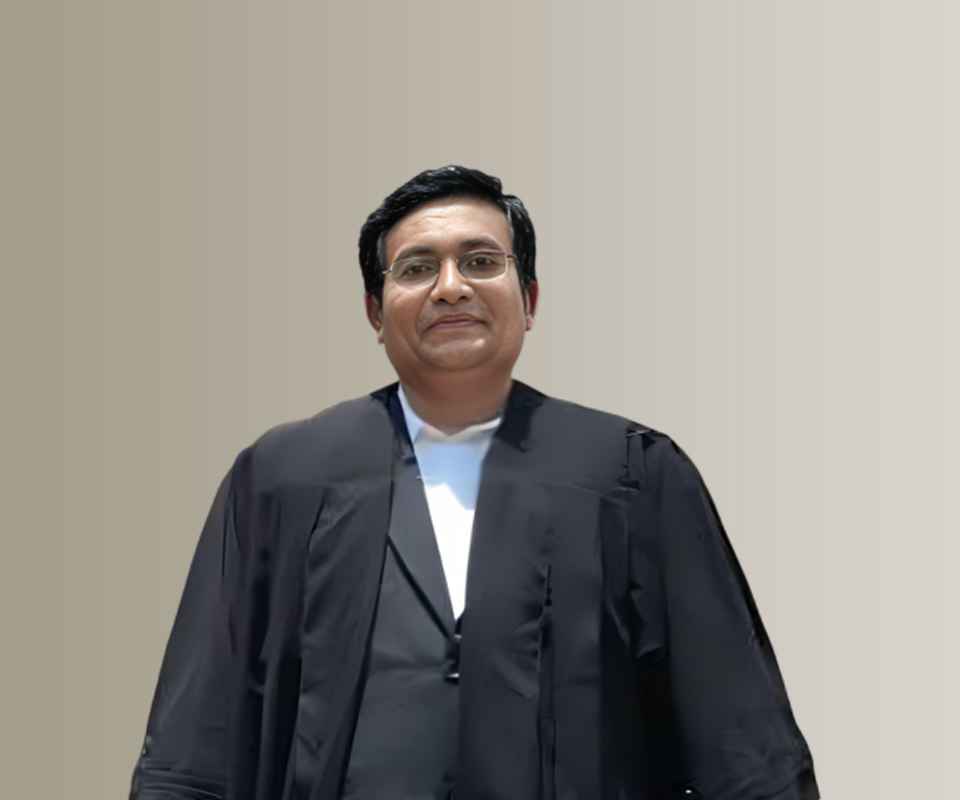A valid Muslim marriage (Nikah) in India, as per Islamic law (Sharia), is a contract between a man and a woman. The basic requirements for a valid Nikah under Muslim personal law are:
1. Offer and Acceptance (Ijab and Qabul)
The marriage must be solemnized with an explicit offer (Ijab) by the groom or his representative and an acceptance (Qabul) by the bride or her representative. This offer and acceptance must be made in the presence of witnesses.
2. Witnesses
At least two adult, sane, and reliable Muslim witnesses are required. These witnesses must be present at the time of the marriage and must hear the offer and acceptance. Both the witnesses should ideally be Muslim men, but women can also be witnesses, especially in the case of specific schools of thought.
3. Mahr (Dower or Bridal Gift)
The groom must offer a Mahr (a mandatory gift, often money or property) to the bride. This is a crucial part of a Muslim marriage. The amount of Mahr can be agreed upon by both parties and does not have a fixed minimum amount under Islamic law, but it should be something reasonable, considering the financial status of the groom.
The Mahr can be immediate (prompt Mahr) or deferred (delayed Mahr) for payment at a later time.
4. Consent
Both the bride and the groom must give their free and full consent to the marriage. The consent should not be coerced, and both parties must be legally capable of making such a decision. If a woman is under the guardianship of a male wali (guardian), her consent must be obtained as well.
5. Age of Marriage
According to Islamic law, the marriage can be solemnized when the individuals have reached puberty and are capable of understanding the responsibilities of marriage. In India, under the Muslim Marriage Act (Shariat Application Act, 1937), a Muslim man can marry a woman who has reached the age of puberty, but as per Indian law, the legal age for marriage is 18 for women and 21 for men.
6. No Prohibited Relationship
The marriage must not fall within the prohibited degrees of relationship. This means the parties involved should not be close relatives (such as siblings, parent-child, etc.). Prohibited relationships are clearly defined under Islamic law.
7. Legal Capacity
Both parties must have the mental and physical capacity to understand the nature of the marriage contract. Anyone who is insane, intoxicated, or otherwise unable to understand the terms of the marriage cannot validly enter into a Nikah.
8. Registration (optional)
While a Muslim marriage is valid under Islamic law even without registration, it is advisable for a couple to register their marriage under the Special Marriage Act, 1954 or under the Muslim Personal Law (Shariat) Application Act, 1937 in order to gain legal recognition in case of disputes or legal matters.
Nikah Nama is the traditional marriage contract signed by both parties and witnessed by two people, and it serves as proof of the marriage.
9. No Prior Marriage (except for Polygamy)
The groom must not be already married (except in cases where polygamy is permitted under Islamic law, i.e., a man can marry up to four women under certain conditions). If either party is already married, proper legal and religious processes need to be followed (e.g., obtaining divorce or permission).
10. No Force or Compulsion
Both parties must marry of their own free will, and there should be no force or compulsion (for example, forced marriages are not valid in Islamic law).
Key Documents in a Nikah
Nikah Nama: The marriage certificate or contract that details the terms, conditions, and Mahr.
Identity Proof: Documents verifying the identity of both parties.
Witness Signatures: Signed by the witnesses present during the Nikah.
Legal Framework in India:
While Muslim law governs the marriage, the Indian Penal Code (IPC) and other laws like the Protection of Women from Domestic Violence Act, 2005 and Muslim Women (Protection of Rights on Divorce) Act, 1986 provide additional protections and legal recourse in case of issues like divorce, maintenance, and inheritance.
Conclusion
A valid Muslim marriage (Nikah) is one that meets the requirements of Islamic law, including mutual consent, the presence of witnesses, the payment of Mahr, and the legal capacity of both parties to marry. Although registration is not mandatory, it is recommended for legal clarity and proof.
If you're looking into any specific nuances, such as the applicability of certain laws or requirements in the Indian context, feel free to ask!
Dear Client,
Nikah is a valid Muslim marriage that has specific legal and religious conditions to ensure it is recognized under Islamic law.
Essential Elements of a Valid Nikah
1. Proposal and Acceptance (Ijab and Qabul):A valid marriage is established with a definite proposal by one party (Ijab) accepted by the other party (Qabul). This is to be done in one sitting; otherwise, if the acceptance is after, the marriage will be considered void.
2. Free Consent: The parties entering into the marriage must give their consent freely, without being subjected to coercion or undue influence. This rule lays greater emphasis on the voluntary agreement that forms the marriage contract.
3. Capacity to Marry: The parties marrying should have the capacity to marry in law; they must, therefore, be sane, major, normally of full age and Muslim.
4. Witnesses: The proposal and acceptance under Sunni law must be witnessed by at least two male witnesses or one male and two female witnesses who should be adults and sane. Shia law does not require the presence of any witness to carry out the marriage.
5. Dower (Mahr): At the time of marriage contract, the man has to give dower to the woman; Mahr can be in terms of some amount of money or property and respect and care towards the woman.
6. No Legal Obstacles: Marriage should not have any legal issues such as unsettled previous marriages or tabooes that are in the lines of family relationship.
Religious Significance
Nikah is considered both a civil contract and an essential religious ritual in Islam that is perceived as a means of meeting social and ethical obligations. It is portrayed as a way of worshiping God and has an essential role in the community as it upholds family values. In short, for a Nikah to be valid in terms of Islamic law, it must meet these above essential criteria, which allow both parties to enter this marriage with mutual respect and proper legal recognition.
Hope this answer helps you.
Answer By Anik
Dear Client,
Nikah is a valid Muslim marriage. It is, essentially a civil contract under the laws of Islam, whereby a man and a woman are allowed to come into lawful union with each other. It is governed by personal law, but certain essential conditions must be fulfilled for it to be considered valid. These include mutual consent, legal capability, and strict adherence to Islamic principles.
Essential Requirements of a Valid Muslim Marriage
1. Proposal (Ijab) and Acceptance (Qubool): Valid Marriage is that one initiates it and the other party accepts it unconditionally, but the Proposer and Acceptor both should articulate in the same gathering assembly before the witness about that they have collectively agreed on about.
2. Competence of Parties: The parties to the marriage must be:
• Sound mind: They must be of sound mind and aware of the nature and obligations of marriage.
• Age: Although according to Islamic law, marriage is permitted when one reaches puberty, in Indian law, the legal marriageable age is 18 years for women and 21 years for men under the Child Marriage Restraint Act, 1929.
3. Free Consent: Parties to marriage must give consent freely. In Islamic law, a marriage solemnized under pressure or undue influence is treated as null and void.
4. Presence of Witnesses: Sunni law requires a marriage to be solemnized in the presence of witnesses who must be two adults, males, and two females in the presence of one male. In the Shia law, witnesses must not be present but the presence of public declaration is necessary in order to make the marriage valid.
5. Mahr (Dower): Mahr is a mandatory gift or consideration given by the husband to the wife, either at the time of marriage or deferred. It signifies respect for the wife and is her exclusive right, enforceable under the law.
Types of Marriage under Muslim Law
Muslim law recognizes three categories of marriage:
1. Valid (Sahih) Marriage: A marriage is considered valid when all the above conditions are satisfied. It gives rise to full marital rights, including legitimacy of offspring, mutual rights of inheritance, and cohabitation.
2. Irregular (Fasid) Marriage: A marriage may be irregular if certain formalities are not fulfilled, such as the absence of witnesses or marriage to a fifth wife. Such a marriage can become valid if the irregularity is rectified.
3. Void (Batil) Marriage: A marriage is void if it contravenes absolute prohibitions, such as marrying a person within prohibited degrees of relationship or during the iddat (waiting) period. A void marriage has no legal effects, and no rights or obligations arise from it.
Legal Effects of a Valid Muslim Marriage
A valid Nikah creates several legal rights and obligations between the husband and wife:
1. Legitimacy of Children: Children born from a valid marriage are legitimate and have full rights of inheritance.
2. Mutual Rights of Inheritance: Both spouses become legal heirs to each other.
3. Maintenance (Nafaqa): The husband is obligated to provide maintenance to the wife during the subsistence of the marriage.
Conclusion
A valid Muslim marriage is a solemn contract that fulfills both religious and legal requirements under Islamic law. It is not only a spiritual and social bond but also a legal agreement that establishes mutual rights and obligations between the spouses. Failure to adhere to the essential conditions may render the marriage irregular or void, affecting its legal validity and consequences.
Hope this answer helps you.









